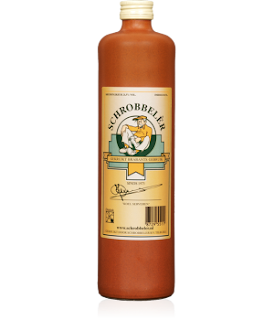The celebration of the 'Feast of Fools' was banned in England by Royal Proclamation in 1542 but in many other countries its spirit survives in the tradition of Carnival.
The Feast of Fools was celebrated on or around the 1st January, but Carnival occurs before the traditional period celebrated by many Christian denominations and known as known as Lent. The word 'Carnival' means 'Farewell to the flesh', maybe because this was when all the meat had to be eaten before Lent.
Lent covers the period between Ash Wednesday and Easter and it commemorates the suffering, death and resurrection of Jesus as believed by Christians. During this time, believers will pray and fast or give up certain things such as meat or smoking. Non-Christians also sometimes use this period to try giving up things that they think are bad for them, such as alcohol.
 |
| Image by R. Durrance |
During Carnival, people have fun before the fasting and austerities of Lent, most people having heard of the famous Carnival in Rio de Janeiro. This year, I visited one in Tilburg, in the south of the Netherlands. It was very interesting to see the tradition of the 'world turned upside down' in practice.
Modern Carnival (or Carnaval if you are Dutch) is celebrated all over the world. Caribbean Carnivals are well-known (Bristol's Afro-Caribbean community and friends celebrate Carnival, based around the St Paul's area of the city) as are those in Latin countries. Apart from the one in Rio, another big example of these would be the Carnival in Santa Cruz de Tenerife.
 |
| Image from http://www.dawn.com/news/1089838 |
Although Rotterdam (which is north of the two rivers that cross the Netherlands) has a two-day Summer Carnival based on Latin-style ones, most people that I spoke to said that it was only south of the rivers that the older style of Dutch Carnaval happens. This may be because in this area, the provinces of Brabant and Limburg, there is a Catholic tradition as opposed to a Protestant one. Historically the Protestants, as in Britain, disliked such frivolity associated with religious festivals and suppressed it.
One thing that I noticed was how everyone was wearing certain colours. Each town has its own Carnaval colours and in Tilburg they are orange and green (which you can see on the scarf that I'm wearing above). Red and white are the colours of the province of Brabant. Happily, there didn't seem to be any kind of factionalism associated with wearing town colours; some people were wearing three or more different town's colours for each place they had been during Carnaval that year.
For the four-day duration of the event, the mayor hands over the keys of the town to the Prince of Carnaval who is responsible for the organisation and running of it. In 2016 this was Prince Robert the First, for his second year running. He parades through the town on the first day in his white and gold hat with big feathers, accompanied by his Council of Eleven in red and white hats.
For these four days, as in others nearby, the town takes on a different name. Tilburg is called 'Kruikestad' which means 'Bottletown'. The town adopts its Carnaval mascot. who is paraded through the street and given pride of place for four days:
At the opening ceremony, Prince Robert the First and his Council danced on stage and he even went up in a cherry picker to lead the dancing (brave man - many Carnaval parades were cancelled this year due to high winds).
I could see many traditions around Carnaval in the clothes and actions of the people around us and everyone seemed to respect it. Some people we met weren't bothered about going into town to celebrate it (they see it every year), however they all appreciated that it happens.
Apart from the parade and the stage in the main square, a lot of celebrating takes place indoors in the bars and clubs - very sensible at this time of year! Those who can't get into town can watch local broadcasts of Carnaval music and interviews on the television.
The Carnaval parade in Tilburg isn't as big as some, but the floats are similar. Big caricatures of people or stories in the news lampoon their targets. It reminded me of the importance of the tradition. Not only is carnival a time for fun and letting off steam, it is also when those in power can be taken to task. 'The world turned upside down' gives a licence to poke fun at influential people who might well deserve it.
We were lucky to see it. Many other towns had their parades scheduled for the next day and had to cancel as the remnants of a storm passed over.
Another thing that was everywhere was the Carnaval music. It is very particular, not necessarily something I'd listen to at home every day but very positive and accessible to anyone. Especially when you are having a few beers to accompany it!
One tune that stuck in my head was this one. It was made by people from Tilburg and is sung in local dialect apparently. The song is about deciding what to wear for Carnaval:
As you might be able to hear, it is fun music to drink to. In Tilburg, the local brew to do this with is Schrobbelèr, a herby-tasting liqueur.
 |
| Image from: https://www.mitra.nl/webshop/product/schrobbelèr/kruidenlikeur/83-bb-ed-e0-c5-eb-ff-ab |
Despite all the drinking though, I saw relatively few signs of trouble. Most people seemed to be local and seemed to respect the event. Many didn't believe that I was from Britain, until I said that my friend lived in the town and we were visiting him. I think that we could well have been the only British people in the town that weekend and it was great!
Thanks very much to our friends and the people of Tilburg for making us so welcome.
Alaaf!









No comments:
Post a Comment